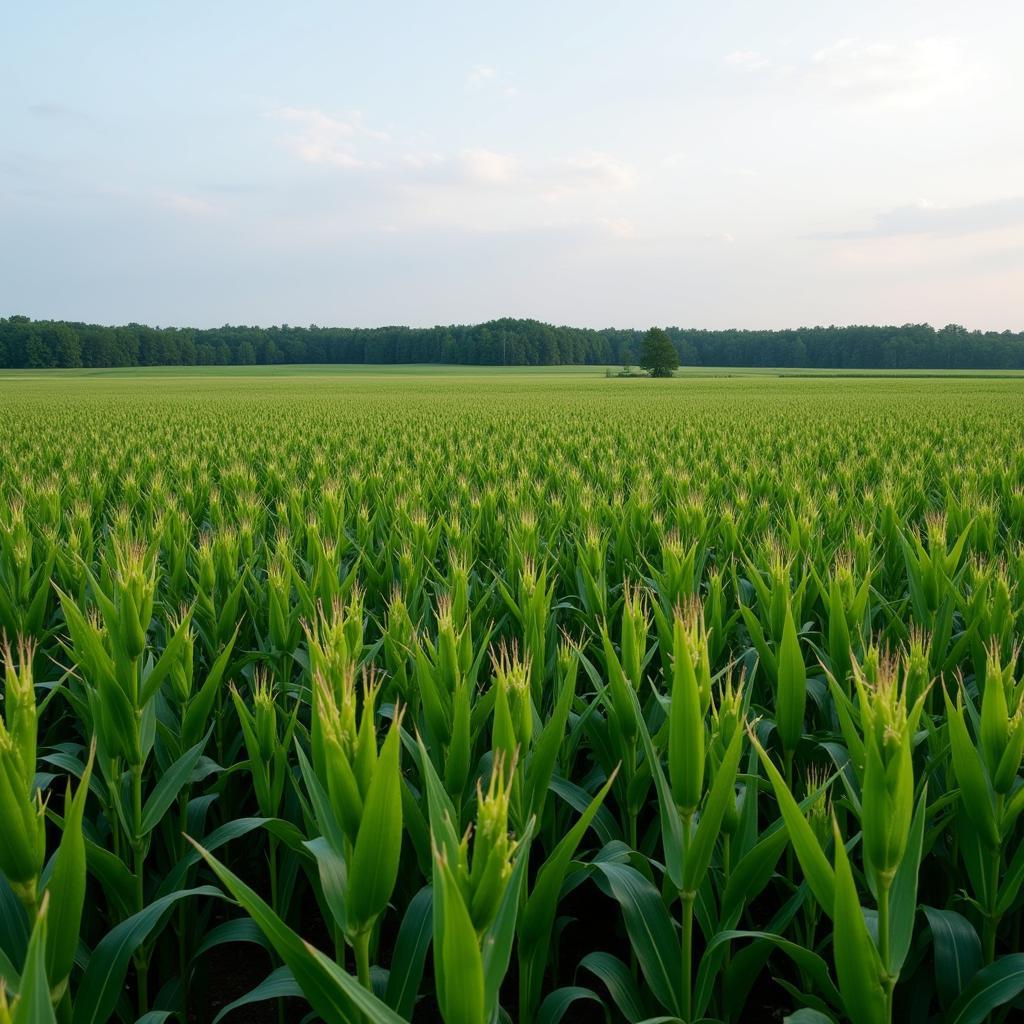Ethanol is a biofuel produced from plants, mainly corn in the United States. It is often blended with gasoline to create E10, which contains 10% ethanol. Ethanol is promoted as a renewable and environmentally friendly alternative to gasoline. However, there are environmental concerns associated with the production and use of ethanol, which are important to consider.
Environmental Impacts of Ethanol Production
Land Use and Deforestation
The production of ethanol requires significant amounts of land for corn cultivation. This can lead to the conversion of forests, grasslands, and other natural habitats into farmland. Deforestation has a significant impact on biodiversity, carbon sequestration, and water quality.
“The expansion of corn production for ethanol can contribute to deforestation, especially in areas with high agricultural demand.” – Dr. Emily Carter, Environmental Scientist
 Corn field replacing forest – deforestation for ethanol production
Corn field replacing forest – deforestation for ethanol production
Water Consumption
Corn is a water-intensive crop, requiring a substantial amount of water for irrigation. This can strain water resources, particularly in regions already facing water scarcity. In addition, the use of pesticides and fertilizers in corn production can contaminate water sources.
“The water footprint of ethanol production is significantly higher than that of gasoline.” – Dr. John Smith, Water Resources Expert
Greenhouse Gas Emissions
While ethanol is often touted as a cleaner-burning fuel than gasoline, the process of producing and transporting it generates greenhouse gas emissions. These emissions come from land use changes, fertilizer production, and the energy required for manufacturing and transportation.
“While ethanol can reduce greenhouse gas emissions compared to gasoline, the overall impact is not always positive, especially when considering the entire production chain.” – Dr. Susan Jones, Environmental Engineer
 Ethanol production plant with smoke stacks – greenhouse gas emissions
Ethanol production plant with smoke stacks – greenhouse gas emissions
Environmental Impacts of Ethanol Use
Engine Performance
Ethanol can have a negative impact on engine performance, particularly older engines that are not designed to handle high ethanol blends. It can lead to corrosion, reduced fuel efficiency, and engine damage.
Air Pollution
Ethanol blends can emit higher levels of certain air pollutants, such as acetaldehyde and formaldehyde. These pollutants are associated with respiratory problems and other health issues.
 Car exhaust fumes polluting the air – ethanol and air quality
Car exhaust fumes polluting the air – ethanol and air quality
Alternatives to Ethanol
There are alternative biofuels that have a lower environmental impact than ethanol, such as biodiesel and cellulosic ethanol. Biodiesel is produced from vegetable oils and animal fats, while cellulosic ethanol is produced from non-food crops like switchgrass.
Conclusion
While ethanol is often promoted as a green fuel, its environmental impacts need to be carefully considered. The production and use of ethanol can have significant negative effects on land use, water resources, and air quality. Alternative biofuels offer a more sustainable solution for reducing our dependence on fossil fuels.
Contact AutoTipPro for more information about vehicle maintenance and repair:
Phone: +1 (641) 206-8880
Office: 500 N St Mary’s St, San Antonio, TX 78205, United States
FAQ
What are the benefits of using ethanol in gasoline?
Ethanol is a renewable fuel source, can reduce greenhouse gas emissions compared to gasoline, and can improve fuel octane ratings.
Is ethanol bad for car engines?
Ethanol can be corrosive to older engine parts, leading to engine damage. However, newer vehicles are designed to handle higher ethanol blends.
Why is ethanol production controversial?
Ethanol production can contribute to land-use change, deforestation, and water consumption, raising concerns about its environmental impact.
What are the best alternative biofuels?
Biodiesel and cellulosic ethanol are considered more sustainable options than ethanol.
How can I reduce my environmental impact when driving?
Consider driving less, choosing fuel-efficient vehicles, and supporting the development of alternative fuels.







Leave a Reply